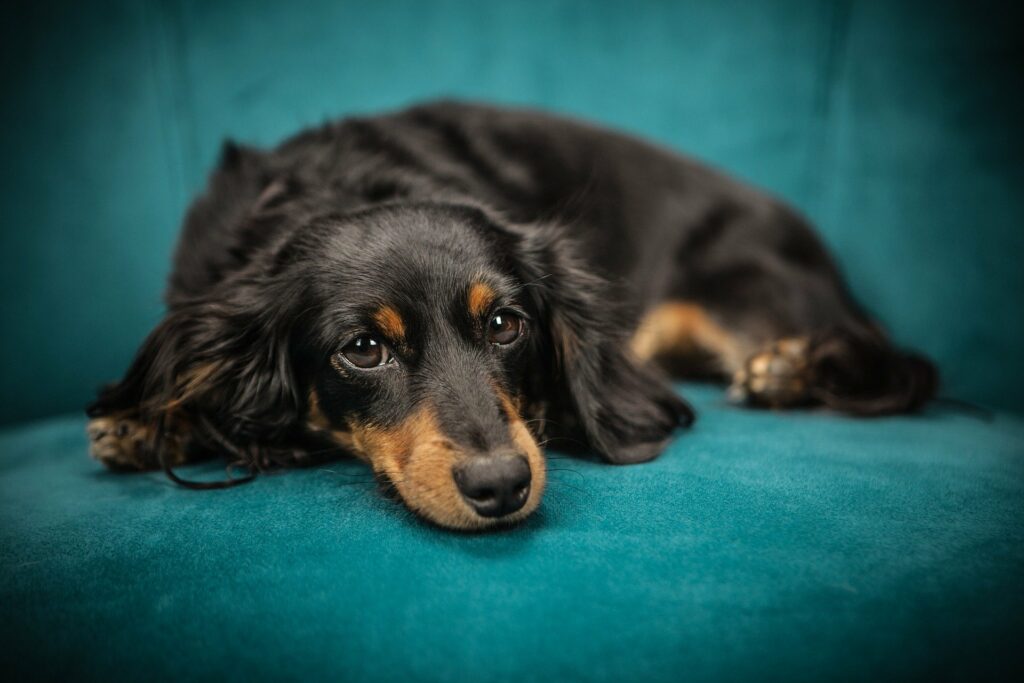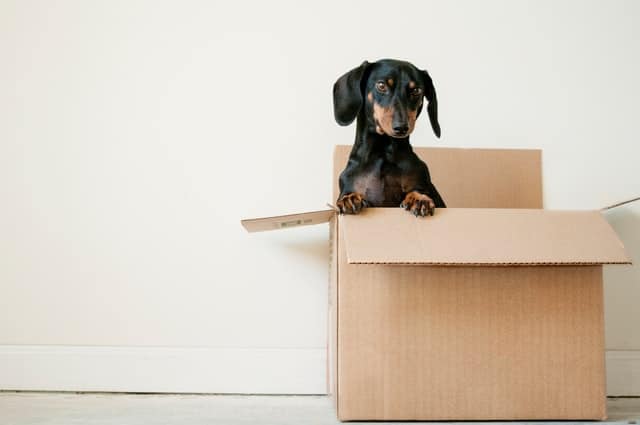Your puppy is new in the house and you’re looking for advice on why your puppy is so hyper and constantly running around?
In this guide, we show you what you can do and why puppies still have to learn a lot of new things compared to their older peers.
The first time with a puppy is exciting and of course you don’t want to do anything wrong. That’s why it’s good to find out how to get your puppy through the first period.
Puppy can’t settle down – what you can do
Your puppy needs to learn to have a calm routine. He is still at an age where a lot of relaxation is the order of the day.
There are many possible reasons for your puppy’s restlessness:
- Excessive demands
- New environment
- Smells
- Unfamiliar voices
- Change of food
Puppies – just like human children – are all different. While some young animals get used to their new home and caregivers right away, others are often anxious shortly after moving in.
Try to put yourself in your puppy’s shoes. The little dog is getting to know so many new impressions that he may react a little overwhelmed at first. Maybe the puppy has only known its mother, its littermates and the breeder.
The many strange voices, noises and smells put a strain on the animal. In addition, some young dogs miss their old environment, especially in the first days to weeks after moving into their new home.
Sometimes puppies are also restless because owners don’t get everything right first time. In general, it is not a good idea to overtax the puppy right at the beginning.
Therefore, refrain from visiting relatives or acquaintances who do not live in the household. Loud noises or other exceptional situations, such as workmen in the house, should also be avoided if possible.
Otherwise it is no wonder that the puppy reacts stressed, hectic or tense.
Especially the first time should give your puppy a sense of security and show him that his new home is even better than his old one.
How to make puppies calmer: 5 effective tips for raising your dog
There are a few factors that can make a puppy nervous:
- Sleep
- neither over- nor under-challenging your puppy mentally and physically
- Food
- Attention
- Patience
The right sleeping place for the puppy is important. The young animal must be able to retreat without being disturbed during rest times.

Make sure that the basket or pillow is not near a staircase or door. Small children or other pets should not be able to approach the sleeping area without being seen.
Your puppy needs to learn: If I retreat here, I am safe and secure. This automatically makes him calmer.
If you always remain sovereign and convey calmness to your puppy, you have already taken the first step.
Of course, young dogs should not be overtaxed either physically or mentally. Nevertheless, it is important that you keep your puppy busy. If the little one is exhausted and can really let off steam in the fresh air, he will be more likely to calm down indoors and sleep better.
You can play with your puppy at least three times a day and let him run around to his heart’s content.
However, remember that puppies are still growing and their bones, ligaments and muscles need to get used to the strain slowly.
Don’t overload your puppy and do too little rather than too much.
A sudden change of food can also cause restlessness in the puppy. Therefore, try to avoid new food or treats, especially in the first few weeks after moving in.
The little dog may get stomach aches or diarrhoea from new food that he doesn’t tolerate straight away. This of course makes him more anxious and makes it much more difficult for him to get used to the new food.
You might get some food in the puppy kit from the breeder, seller or shelter so that you can feed it in the beginning.
The fourth tip can be easily implemented by all dog owners with a big heart for their own four-legged friend. Pay a lot of attention to the animal and always be there for the puppy.
The young dog can become restless because it thinks that its mother and siblings have left it.

Signal to the animal: I am here for you and I will not leave. Let the puppy sleep on your lap, pamper it with cuddles and talk to it calmly again and again.
One way to give the little dog more rest is to buy a dog crate or another container that can be firmly closed. What at first seems like a mean confinement has a positive effect on the puppy’s mind.
Eventually he learns the following: When the door to my box is closed, I can calm down. Then I don’t miss anything, but can lie down in peace.
If the puppy gets more sleep this way, he will be more relaxed during the day.
In these cases the expert can help
If you follow the above tips and there is no improvement in the behaviour, then you should consult a vet and, secondarily, a dog trainer.
Sometimes young dogs do not settle down because they are in pain, sick or simply need a worming treatment. The vet will quickly determine this during an examination.
If there are no purely physical causes for the puppy’s persistent restlessness, it may be due to the animal’s psyche. See a dog trainer without obligation, introduce your animal and explain the problems.
For any behaviour where your puppy does not listen, you can find more tips on how to deal with it here.
An experienced person may be able to tell you what you should change to make living with your puppy more relaxed.
An outsider can look at the relationship between you and your puppy from a neutral point of view and come up with a solution to the puppy’s behaviour more quickly.
You may only have to change a small thing to make a big difference. It’s worth it in the end for both humans and animals.
Here we have summarized our most popular posts for you in a great overview:
- Which dog is suitable for allergy sufferers?
- How much does a dog cost per month?
- What to look for in a German Shepherd Dog
- Do dogs know when you are angry with them?
- Are Dachshunds family dogs
- Small or large dog
- How often does a Maltese need a haircut?
- Optimal daily routine for puppies
Conclusion Puppy does not settle down
The new puppy has moved into the house and is only running, romping or playing? Then you know your puppy needs clear rules again.
In order to change your puppy’s behaviour for the better, you first need to find out what is making your puppy nervous.
If it’s the food, the sleeping area or too many visitors, it’s easy to counteract.
With our five tips for more calmness, you are well equipped to get back on track with your puppy in the long term.



